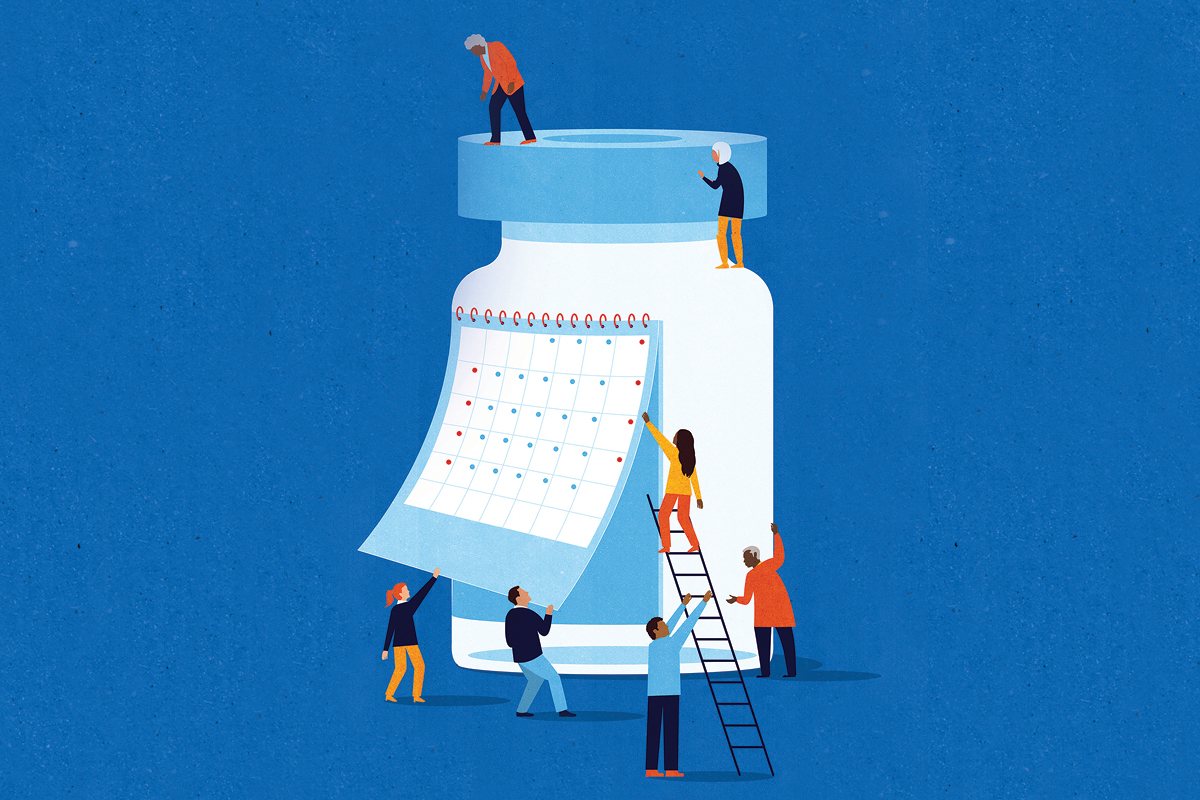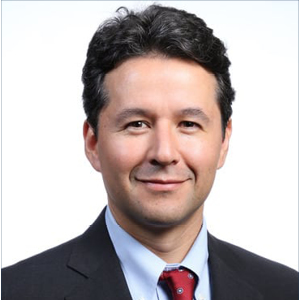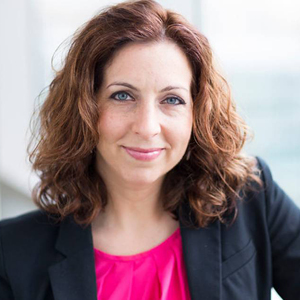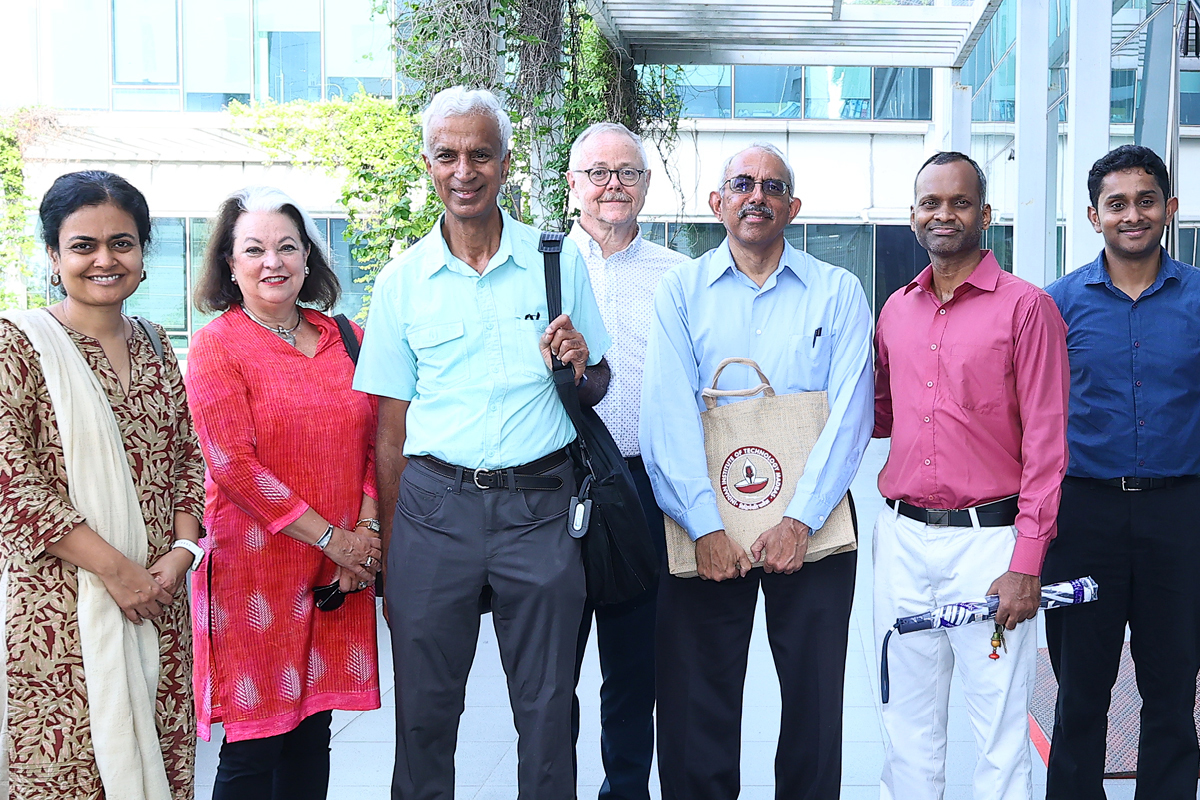Advancing Diabetes Solutions
A Year of Impact & Innovation

In 1994, the Centers for Disease Control and Prevention (CDC) declared diabetes an epidemic. Thirty years later, more than half a billion cases of diabetes persist worldwide. Recent advances in the diabetes research landscape such as GLP-1 agonists (drugs that can treat people with type 2 diabetes and obesity) show great promise but are only one piece of the puzzle in global prevention and treatment.
Emory scientists and clinicians have earned recognition for their deep understanding of disease biology and development of life-changing interventions and medications. On its mission to improve the lives of people and populations through interdisciplinary research, Emory Global Diabetes Research Center’s (EGDRC) recent momentum highlights the center's ongoing role as a beacon for innovation, driven by its unique approaches, support from esteemed Emory donors, and its expanding collaborations around the world.
From Dissertation to Startup

Jithin Varghese, PhD, Assistant Research Professor of Global Health
Chase Fensore, a 2024 Shankar Fellow currently conducting research alongside DTA mentor Joyce Ho, PhD, believes Emory and EGDRC are ideal places to translate technology to patients in need.
“The integration of computer science, statistics, biostatistics, and the medical school creates a perfect environment for students like me to collaborate and apply our research to benefit the community,” Fensore says.

Francisco Pasquel, MD, Associate Professor of Medicine and Global Health
The fellowship was made possible by a generous $3 million donation from pioneering entrepreneur Subramonian Shankar, who founded PC hardware giant AMI in 1985. He served as president and CEO of AMI until 2019, when he started AmZetta Technologies, a spinoff of AMI which he currently leads as CEO. Shankar hopes that through this fellowship, budding entrepreneurial researchers in the U.S. and India will have the support they need to advance diabetes technology.
“Benefits of the IIT Madras partnership are the ability to conduct testing in both the U.S. and India, increasing the likelihood of creating affordable solutions and knowledge exchange,” Shankar says.
Investing in the Future of Diabetes Research
Professorships impact research by providing sustained funding for long-term studies, attracting top-tier talent, and supporting innovative, high-risk projects not feasible with short-term grants.
At EGDRC’s fall 2023 strategic advisors meeting, Rhona Applebaum, PhD, former vice president and chief science and health officer at Coca-Cola, and her husband, Mark Peabody, pledged $1 million to establish the Applebaum-Peabody Professor of Global Diabetes as part of Emory President Greg Fenves’ Faculty Eminence Initiative.
Applebaum’s unwavering support for EGDRC and the Rollins School of Public Health began more than a decade ago. “Diet is undoubtedly crucial, but other risk factors such as physical activity, weight, age, sleep, family history, socioeconomic status, race, and ethnicity must also be considered,” Applebaum says. “Recognizing the need for more global research, I made a commitment to this cause. Coming to Atlanta and meeting the exceptional staff and students at Rollins strengthened my dedication.”
Applebaum says the most rewarding part of her involvement has been the amazing accomplishments of EGDRC and that the center has what she likes to call the “G-SIR factor.”
“The G-SIR factor can apply to any organization, but EGDRC has exceeded expectations,” Applebaum says. “Witnessing the Growth, Success, Impact, and Recognition of the EGDRC has been the most fulfilling aspect of my involvement. It has been an honor and a privilege to be associated with and support EGDRC on its journey.”
Understanding Pancreatic Complexities to Advance Type 2 Diabetes Research

Lisa Staimez, PhD, Assistant professor of Global Health
During a recent trip to India, Lisa Staimez, PhD, assistant professor of global health, was part of the inauguration of the Asian Centre for Endocrine Pancreas Research (AC-EPR). AC-EPR is a partnership between EGDRC, the Asian Institute of Gastroenterology Hospitals, and partners like Vanderbilt, the University of Hyderabad, and St. John’s National Academy of Health Sciences. Funded by the India Alliance and the DBT-Wellcome Trust, AC-EPR aims to create an Asian biorepository of human pancreatic islets and advanced human studies of insulin secretion among people with different risks for developing diabetes.
“The Pancreatic Biobank emerged from the necessity to advance type 2 diabetes research, focusing on pancreatic endocrine function,” Staimez says. “Given the pancreas’ challenging location, it’s difficult to study directly, making biopsies far more complicated than other organs.”
As a diabetes epidemiologist, Staimez’s role is to integrate population sciences into the project. This includes translating cellular discoveries into clinical manifestations and identifying population biomarkers of disease risk and progression in type 2 diabetes. She will also train new investigators in combining epidemiology, translational research, and molecular sciences.
“This initiative aims to overcome past research limitations, such as global comparability of population-level functional differences and a clear understanding of the mechanisms of diabetes development at the pancreatic level,” Staimez says.

(l-r) Shivani A. Patel, Kathryn Graves, Subramonian Shankar, Mark Hutcheson, K. M. Venkat Narayan, Mohanasankar Sivaprakasam, and Jithin Varghese.
$22 Million Grant Supports Type 3 Diabetes Research
Over the last half-decade, researchers have coined the term “type 3 diabetes” to describe the theory that insulin resistance and insulin-like growth factor dysfunction in the brain may lead to Alzheimer’s disease. However, further investigation is necessary to grasp the connection between diabetes and Alzheimer’s.
During EGDRC’s 2023 Center for Cardiometabolic Risk Reduction in South Asia (CARRS) meeting in Kochi, India, global investigators gathered to discuss the CARRS cohort study—a population-based cohort of South Asians serving to address existing and emerging questions related to cardio-metabolic disease. At this meeting, investigators supported the idea of leveraging the cohort to start an initiative centered around the connection between diabetes and Alzheimer’s.
Within the year, CARRS researchers secured a $22 million grant from the National Institute of Aging to support the initiative.
“This funding will bring a new dimension to the massive CARRS program and dive deeply into the connections between cardiometabolic disease and dementia,” says Venkat Narayan, MD, executive director of EGDRC.
Alongside Narayan, this initiative is led by a global multidisciplinary team of principal investigators including Allan Levey, MD, director of the Goizueta Alzheimer’s Disease Research Center; Suvarna Alladi, MD, professor of neurology, National Institute of Mental Health and Neurosciences; Dorairaj Prabhakaran, MD, executive director of the Centre for Chronic Disease Control; and Vishwanathan Mohan, MD, president and chief of diabetes research at Madras Diabetes Research Foundation (MDRF).
Research indicates that people with diabetes, particularly type 2 diabetes, are at an increased and accelerated risk of developing Alzheimer’s disease and other forms of dementia. “Understanding the link between diabetes and Alzheimer’s could revolutionize how we approach both conditions,” Levey says. “Our collaboration, supported by this significant grant, aims to uncover these connections and pave the way for innovative treatments that address the root causes of neurodegenerative diseases.”
These annual CARRS meetings in India are pivotal for collaboration and for brainstorming future research. This year, the 2024 meeting will be held in the United States at Emory’s campus in October for the first time since the program's inception nearly two decades ago.
On June 20, 2024, Mohan landed in Atlanta to receive the center’s Inaugural Distinguished Lecture Award and present many of the successes from the 17-year MDRF-Emory collaboration. Mohan says he’s excited for the opportunity to be back in Atlanta and join his global partners again for the 2024 CARRS meeting.
“I do not doubt that meetings like these will help to foster multisectoral and multidisciplinary collaborations which will take CARRS and Precision CARRS to the next level,” Mohan says. “I am looking forward to October’s meeting with great excitement.”





